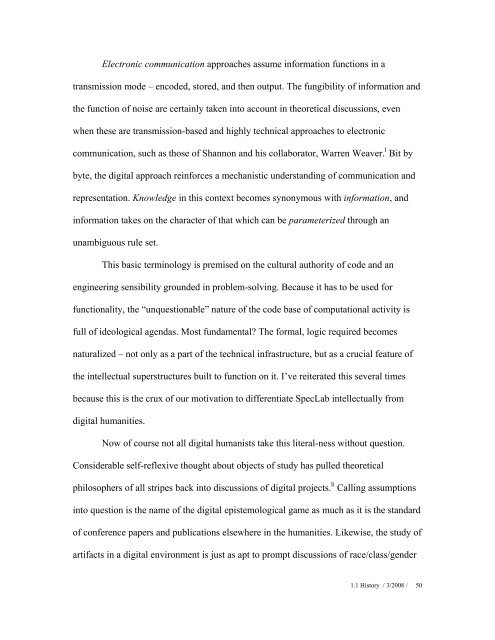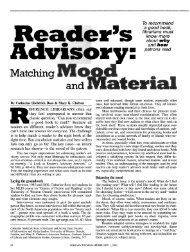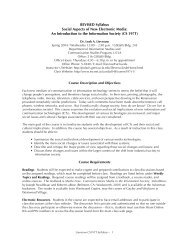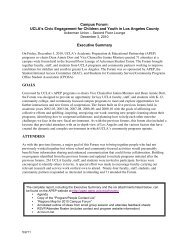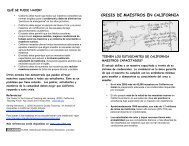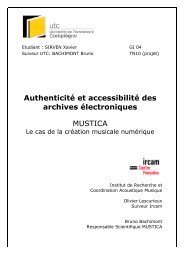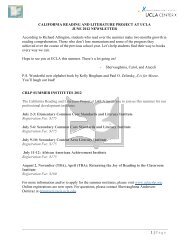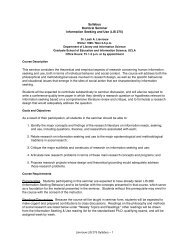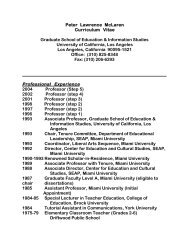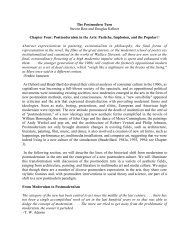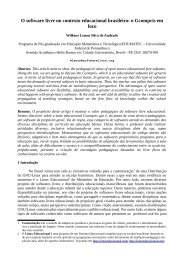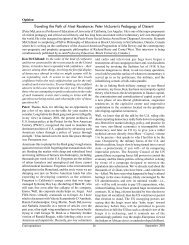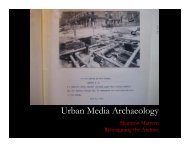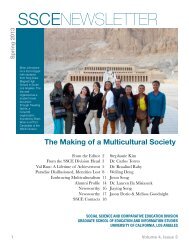1.1 From Digital Humanities to Speculative Computing - UCLA ...
1.1 From Digital Humanities to Speculative Computing - UCLA ...
1.1 From Digital Humanities to Speculative Computing - UCLA ...
Create successful ePaper yourself
Turn your PDF publications into a flip-book with our unique Google optimized e-Paper software.
Electronic communication approaches assume information functions in a<br />
transmission mode – encoded, s<strong>to</strong>red, and then output. The fungibility of information and<br />
the function of noise are certainly taken in<strong>to</strong> account in theoretical discussions, even<br />
when these are transmission-based and highly technical approaches <strong>to</strong> electronic<br />
communication, such as those of Shannon and his collabora<strong>to</strong>r, Warren Weaver. l Bit by<br />
byte, the digital approach reinforces a mechanistic understanding of communication and<br />
representation. Knowledge in this context becomes synonymous with information, and<br />
information takes on the character of that which can be parameterized through an<br />
unambiguous rule set.<br />
This basic terminology is premised on the cultural authority of code and an<br />
engineering sensibility grounded in problem-solving. Because it has <strong>to</strong> be used for<br />
functionality, the “unquestionable” nature of the code base of computational activity is<br />
full of ideological agendas. Most fundamental? The formal, logic required becomes<br />
naturalized – not only as a part of the technical infrastructure, but as a crucial feature of<br />
the intellectual superstructures built <strong>to</strong> function on it. I’ve reiterated this several times<br />
because this is the crux of our motivation <strong>to</strong> differentiate SpecLab intellectually from<br />
digital humanities.<br />
Now of course not all digital humanists take this literal-ness without question.<br />
Considerable self-reflexive thought about objects of study has pulled theoretical<br />
philosophers of all stripes back in<strong>to</strong> discussions of digital projects. li Calling assumptions<br />
in<strong>to</strong> question is the name of the digital epistemological game as much as it is the standard<br />
of conference papers and publications elsewhere in the humanities. Likewise, the study of<br />
artifacts in a digital environment is just as apt <strong>to</strong> prompt discussions of race/class/gender<br />
<strong>1.1</strong> His<strong>to</strong>ry / 3/2008 /<br />
50


